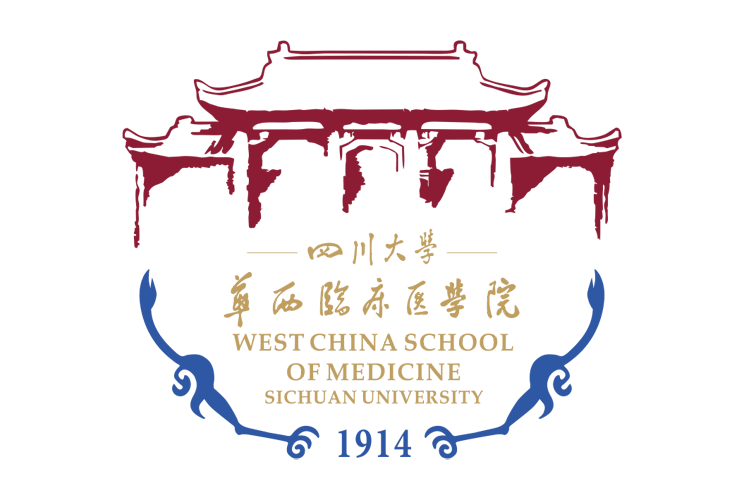
Objectives of Program
To produce internationally competent clinicians with solid medicalknowledge, excellent
clinical skills and good professionalism.
Requirements of Program
Principles:
(1) Teaching of medical knowledge will be based on solidscientific principles and enable
students to develop lifelong learning habits, correspondingclinical skills and appropriate
professional ethics.
(2) Education will not only focus on the basic principles ofmedical science and clinical
skills, but also develop students' analytical skills andtheir ability to make sound judgments
based on evidence and experience.
(3) The students will engage in effective medicalinternships under the guidance of senior
physicians before graduation.
Professionalism and Ethics Quality:
(1) Willingness to dedicate themselves to enhancing thehealth profession and fostering the
well-being of the mind and body;
(2) Good care for patients, recognition of lifelongresponsibility to prevent disease and
eliminate symptoms, the moral obligation to provide hospicecare, and the professional
responsibility to safeguard the health interests of humanbeings;
(3) Ability to uphold principles and make full use of healthresources;
(4) Devotion to lifelong learning and continuousself-improvement;
(5) Respect for each individual and their beliefs;
(6) Scientific attitude by seeking truth from evidence andgetting help from other doctors
when they are unable to solve medical problems bythemselves;
(7) Sense of innovation;
(8) Spirit of teamwork;
(9) Ability to practice medicine in accordance with the lawsand to use the laws to protect
patients and their own rights and interests.
Basic Knowledge:
(1) Basic Chinese language and today's China;
(2) Mathematics, physics, chemistry, life science,behavioral science and social sciences, as
they are related to medicine, and how to use this knowledgeto guide their medical practice;
(3) Body structure and function in human beings, humanbehavior, and normal state of
mind;
(4) Causes of common diseases and frequently-occurringdiseases including mental
illnesses, the impact of environmental, social, behavioraland psychological factors on the
27
occurrence and development of diseases and the importance ofdisease prevention;
(5) Pathogenesis, clinical symptoms, diagnosis andpreventive ways of common diseases
and frequently-occurring diseases;
(6) Basic knowledge of pharmacology and clinical principlesof rational drug use;
(7) Normal pregnancy and delivery, common obstetricemergency treatment, principles of
prenatal and postnatal health care, and family planning;
(8) Health education and disease prevention, commondiseases, disabilities, rehabilitation,
hospice care, and general practice;
(9) Knowledge of clinical epidemiology;
(10) Basic patterns of development and spread of infectiousdiseases, and prevention of
common infectious diseases;
(11) Principles of fair and effective distribution of healthcare services and rational use of
limited medical resources;
(12) Basic characteristics of Traditional Chinese Medicineand its application based on an
overall analysis of the patient's condition.
Clinical Skills:
(1) Collect medical history comprehensively, systematicallyand correctly;
(2) Perform systematic and standardized physical andpsychiatric examinations and write
standard records;
(3) Make and express accurate clinical judgments;
(4) Diagnose and treat common and frequently-occurringdiseases in internal medicine,
surgery, obstetrics and gynecology, pediatrics and otherbranches of medicine;
(5) Diagnose and treat general emergency cases;
(6) Select appropriate clinical diagnosis and treatment forpatients;
(7) Improve treatment methods in medical practice by usingthe principles of
evidence-based medicine;
(8) Communicate with patients and their families effectivelyand encourage patient
cooperation;
(9) Share their experience with doctors and other medicalpersonnel effectively;
(10) Analyze medical problems independently and acquire newknowledge and relevant
information based on clinical practice, with the help oflibrary databases and modern
information technology;
(11) Publicize relevant knowledge about healthy lifestylesand disease prevention to
patients and the general public;
(12) Study more independently and throughout their lives.
Major Field:
Basic Medical Sciences
Clinical Medicine
Main Courses:
Internal Medicine
Surgery
Obstetrics and Gynaecology
Pediatrics
Basic Schooling:6 Years
The Maximum and Minimum Years for Taking Courses: Six to Eight Years
The Minimum Credits for Graduation:250
Diploma:Bachelor of Medicine and Bachelor ofSurgery(MBBS)

本科教学公众号

华西微家本科教学